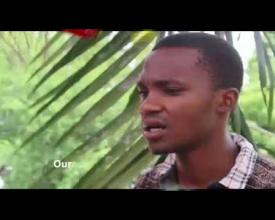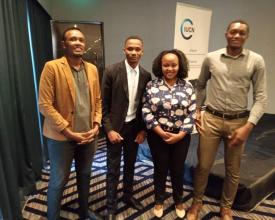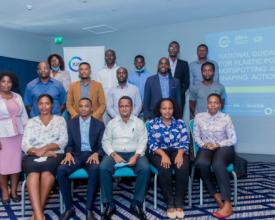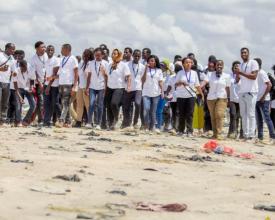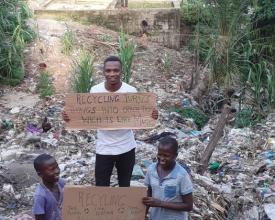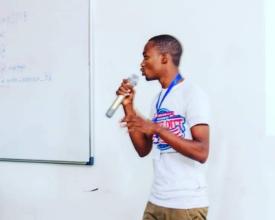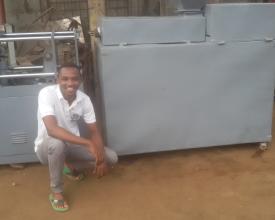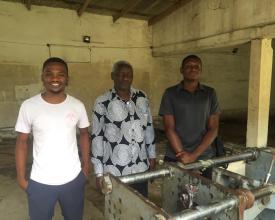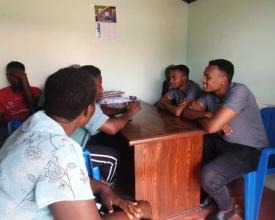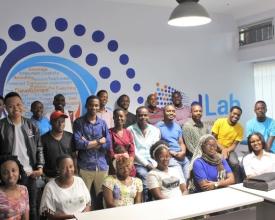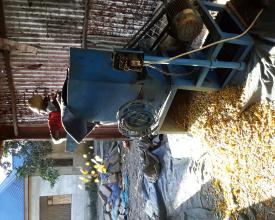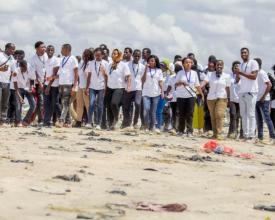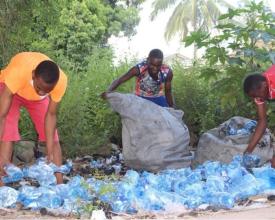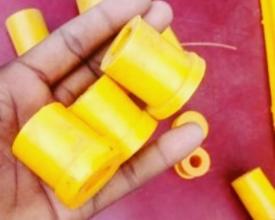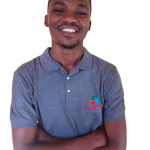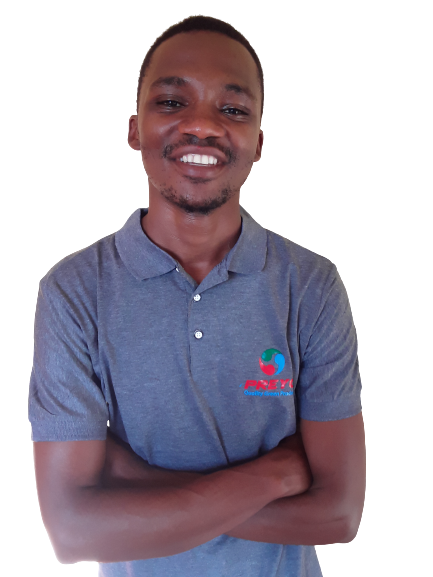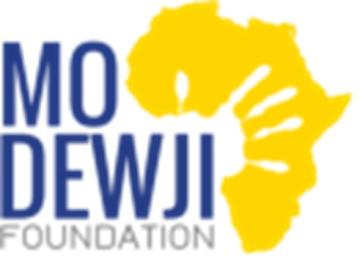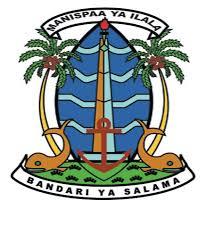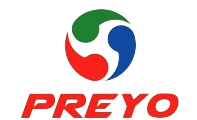
PREYO TZ
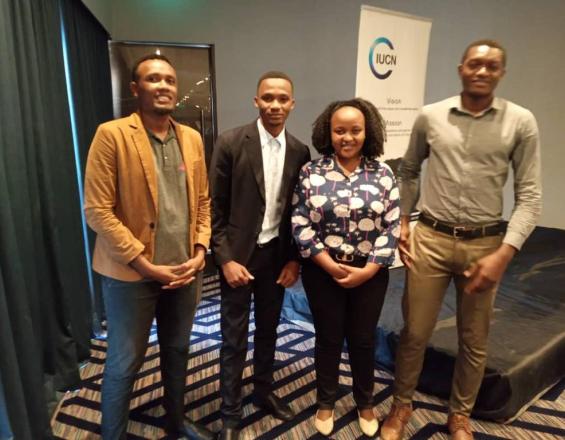
The Plastic Recycling and Youth Empowerment Organisation - PREYO TZ- is registered Tanzania’s youth startup aiming to reduce the plastic pollution problem in Tanzania and Africa at large. We are driven by the urge to end the waste pollution problems in cities by turning waste into valuable commodities. We have managed to reap the benefit out of waste by turning them into refillable block pavement (building materials), home decoration (flowers), and furniture. PREYO's mission is to restore, protect and enhance the environment, to ensure public health, environmental quality, and economic vitality. We plan to turn every trace and remains of plastics into precious reusable items. Economically, we will harness the benefit of waste and plastic trash where after the installation of the plastic recycling industry more than 2,000 individuals will get direct and indirect employment.
Context
Challenges addressed
We are tackling the issue of plastic pollution in rivers and beaches. These wastes cause flooding and have a large impact on human health and the aquatic ecosystem. We collect the plastic wastes and turning it into usable commodities such as car bushes, refillable block pavement (building materials), and home decoration (flowers), which leave the environment and atmosphere free of pollution.
Location
Process
Summary of the process
The strength of PREYO’s team is the diversity and complementarity of skills available in terms of Vocational Trainings. Some members have the skills to fabricate machines suitable for crushing plastics. Also, the team comprises social innovators capable of attracting strong partnerships in the recycling business. That is attracting people who are in a position to support PREYO’s work in terms of running costs and buying machines. Moreover, networking with other recyclers, staying open to new ideas and partnerships have boosted PREYO’s innovation capacities and visibility and this has allowed them to produce good quality products.
Building Blocks
Skilled and talented team members
PREYO team comprises 10 permanent workers and more than 200 temporary workers who are waste pickers, also gender is observed. People involved have different talents and skills, including people with Vocational Trainings, responsible for fabricating the machines. So teamwork has made us take a step further and reducing the cost of production
Enabling factors
Sharing of ideas with some people who are interested in what we are doing and could offer to join my company. For example, one member was inspired by what I was doing and he decided to send an application letter. And the good thing was that they were frequently visiting my workplace. So networking has made it easier for building a team. Doing research and participating in events for networking.
Lesson learned
We have learned about sharing responsibilities because it reduces costs. For example, we needed TZS 85 million (USD 38000) to purchase the plastic mold injection machine but through teamwork, we have fabricated it for TZS 12 million (USD 5200) and it works perfectly.
Creating effective partnership and innovation
PREYO team members participated in the training at the Digital Opportunity Trust (DOT) a youth-led movement of daring social innovators where we learned a lot. That’s when the network with different people started to grow and more ideas were coming in. Some people quitted their projects and joined us because of the efforts we invested in promoting our work and innovative ideas.
Enabling factors
Partnering with different innovators and people who have resources including machines and those with knowledge on how to run a recycling business.
Lesson learned
We have learned that you can start with an idea and focus on producing plastic flakes but as you get into innovation things change and you come to find the market for something you are targeting may be the same but the trick is you have to add something extra in order to win the market. Also, we have learned that to win the market, fundraising technique, networking, and language communication are very important.
Impacts
We have managed to collect about 6,000 tons of plastic including both PET bottles and PP and 3000 tons of HDPE. We have successfully raised awareness about plastic waste in the restaurant community, and at the bus stands because these are the main sources of plastic littering. We have partnered with NipeFagio and Zaidi recycling at various events of beach cleanup where we have been collecting a significant amount of plastics thereby preventing leakage into the Oceanic environment. Our initiative has received global attention and has received a Green African Global climatic African ambassador award and the Mohamed Dewji Foundation support. We have supported about 200 people who are waste pickers through the purchase of plastic waste at a price of TZS 200 per kg.
Beneficiaries
Ten permanent workers and more than 200 temporary workers who are waste pickers are benefiting. The public is benefiting from cleanness done by PREYO. 300 clubs have been established in various schools in Dar es Salaam aiming at empowering the youth.
Sustainable Development Goals
Story
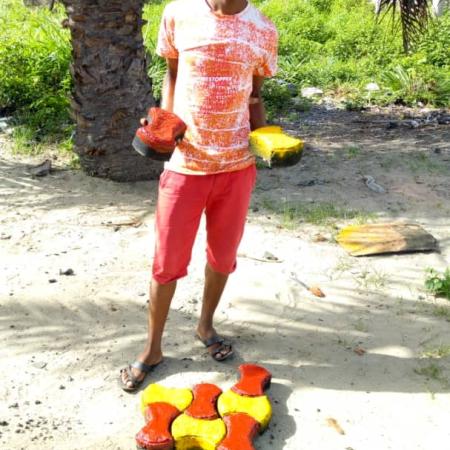
Abdalla Nyambi is the CEO of the Plastic Recycling and Youth Empowerment Group (PREYO) established in 2015. One day while walking down the street to visit Erick, Abdalla passed by a restaurant that was located in front of a residential house. The owner of the house was arguing with the restaurant owner and later the passer-by asked them what had happened? The lady said that restaurant customers were discarding empty plastic bottles in front of her house. It was a serious dispute until the village executive officer intervened. They were told to collect them and wait for the garbage truck to pick them up and throw them away. When Abdalla arrived at Erick’s place he told him that on his way he saw people arguing about plastic waste. But he remembers to have seen people collecting plastic waste but he was not sure why they were collecting those plastics. He told him they would do some research to find out what plastic waste is collected and why. After research, they discovered that the plastics that were collected were sold in recycling factories owned by the Chinese. In the factory, plastics were cleaned and ground to either make new products or sell pellets. Since the Chinese were making products, they saw an opportunity. But it was not possible to start as the Chinese so they agreed to start an organization. They formed a group of about 10 people and elected Erick as Secretary. They began the initiative by educating the public about the problem of plastic waste and also started visiting places that were dealing with plastics to explore and understand it more. As they understood plastic they decided to fabricate their own Plastic injection molding system which they are currently using to make different products. These products are car bushes, and bricks which have been tested for their strength and found to be suitable for the construction of houses. Abdalla said the brick project requires a lot of investment and they are currently in negotiation with partners to see how they can get started. They have successfully fabricated their own machine which is a modified extruder with some added features. This was made possible by the support from the district council in terms of loans (TZS 4 million) and their own savings. They have adopted this system because is used all over the world. That is why they decided to invest in plastic recycling because raw materials are widely available.

